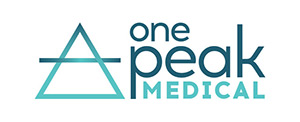5 Signs and Symptoms of PCOS
What is PCOS?
Polycystic ovary syndrome (PCOS) is a hormonal disorder we often treat at OnePeak Medical Clinic. Although many people have heard of it, many people don’t really know what it is or what symptoms to look for. PCOS is very common among women of reproductive age and is widely underdiagnosed in women seeking help. Women with PCOS may have infrequent or prolonged menstrual periods or excess male hormone (androgen) levels. The ovaries may develop numerous small collections of fluid (follicles) and fail to regularly release eggs.
What are the symptoms of PCOS?
PCOS symptoms often develop around the time of the first menstrual period during puberty. However, PCOS can develop later, for example, in response to substantial weight gain (symptoms are typically more severe if you’re obese). Often, the signs of PCOS vary widely between patients and go undiagnosed. It is important to be aware of your body, your menstrual cycle, and regularity regarding your cycle because knowing your body is important in determining if you need to seek help in the first place!
Here are a few common symptoms to look out for:
- Irregular periods: Infrequent, irregular, or prolonged menstrual cycles are the most common sign of PCOS. For example, you might have fewer than nine periods per year, more than 35 days between periods, or abnormally heavy periods.
- Polycystic ovaries: Your enlarged ovaries contain follicles that surround the eggs. As a result, the ovaries might fail to function regularly.
- Acne: Severe, persisting acne even with treatment and normal diet, and not suspected to be related to stress or other factors.
- Balding: Physical signs, such as balding, are generally correlated to abnormally high levels of androgens which contribute to a hormonal imbalance.
- Facial hair
- Infertility
What causes PCOS?
The exact cause of PCOS is unknown, but some factors that may play a role include:
- Excess insulin: Insulin is the hormone produced in the pancreas that allows cells to use sugar, your primary energy supply. If your cells become resistant to insulin, then your blood sugar levels rise and your body produces more insulin. Excess insulin increases androgen production, causing difficulty with ovulation (a very common sign of PCOS).
- Low-grade inflammation: Research shows that women with PCOS have low-grade inflammation that stimulates polycystic ovaries to produce androgens, which can lead to heart and blood vessel problems.
- Heredity: Research suggests certain genes might be linked to PCOS.
- Excess androgen: The ovaries produce abnormally high levels of androgen resulting in hirsutism (facial hair) and acne.
What are the complications of PCOS?
- Infertility
- Gestational diabetes or pregnancy-induced high blood pressure
- Miscarriage or premature birth
- Nonalcoholic steatohepatitis: a severe liver inflammation caused by fat accumulation in the liver
- Metabolic syndrome: a cluster of conditions including high blood pressure, high blood sugar, and abnormal cholesterol or triglyceride levels significantly increase your risk of cardiovascular disease
- Type 2 Diabetes or Pre-Diabetes
- Sleep apnea
- Depression
- Anxiety
- Eating disorders
- Abnormal uterine bleeding
- Cancer of the uterine lining (endometrial cancer)
How to get help
Early diagnosis and treatment, along with weight loss, may reduce the risk of long-term complications such as Type 2 Diabetes and heart disease.
Finding a medical provider who has experience evaluating, diagnosing, testing, and (most importantly) treating PCOS is crucial. OnePeak Medical Providers listen to each of their patients’ stories, history, and symptoms to help and guide them to wellness.
Our providers are experts at treating hormonal imbalances and want to make sure their patients are being cared for and treated in the best possible way. If you suspect PCOS could be your problem, or if you suspect any other hormonal issue, book an appointment with one of our amazing providers today.

